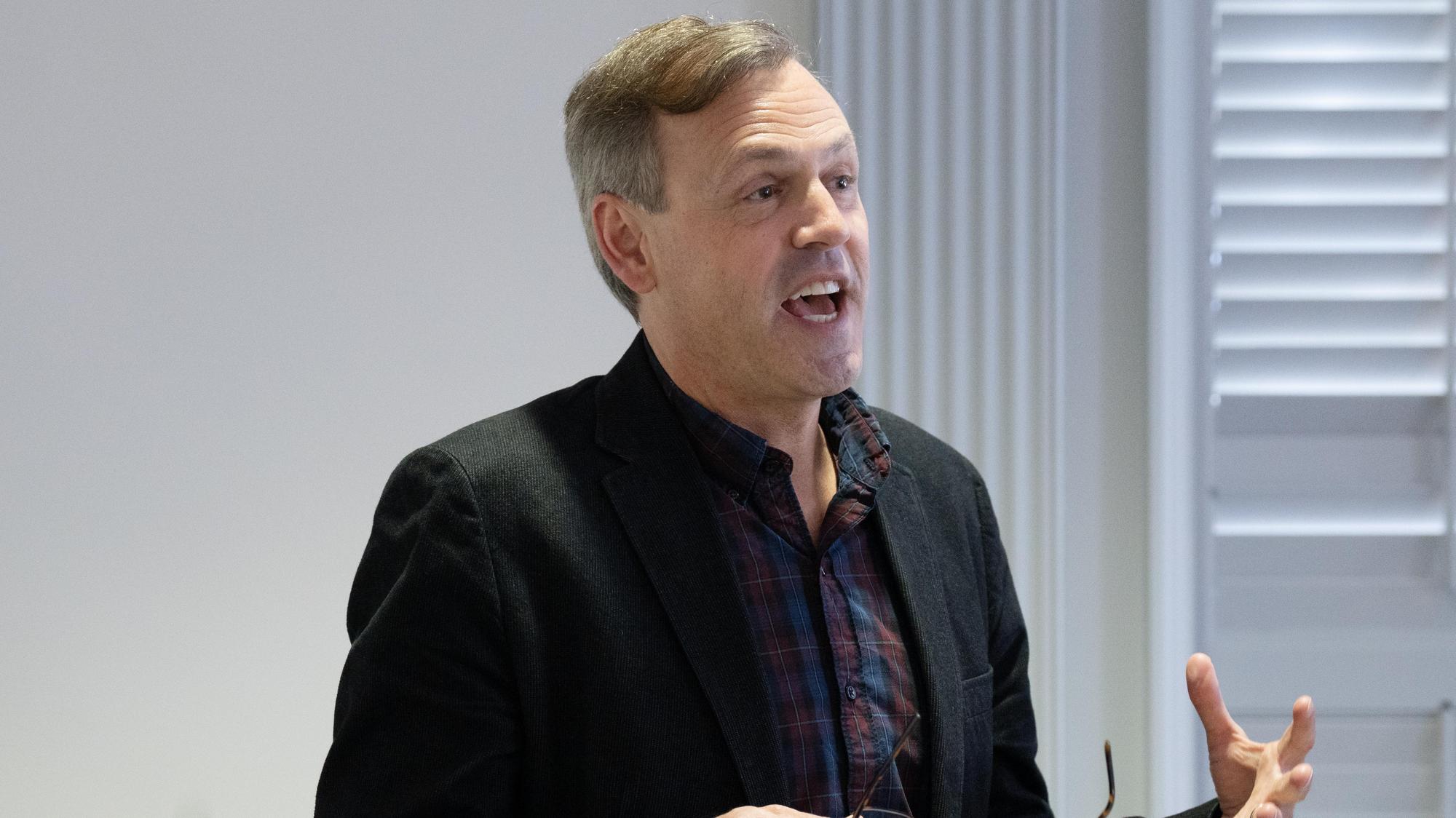New course examines overlooked genre of working-class literature

Like the rest of the Furman community, the students in the course ENG 348 had Labor Day off. But many of them were probably reflecting on the purpose of the holiday – recognizing the contributions and achievements of American workers – as they continued working through their reading list of American working-class literature.
By the time the long weekend came, the students in the course designed and led by Timothy Helwig, a visiting professor of English, had already studied “Letters from an American Farmer,” written by J. Hector St. John de Crevecoeur in the 18th century, as well as 19th-century works by Alexis de Tocqueville, Washington Irving and Edgar Allan Poe. Still ahead on the syllabus were Walt Whitman and Herman Melville and 20th century authors like Zora Neale Hurston and Raymond Carver. But most of the other names on the “American Working-Class Literature” reading list may have been unfamiliar to Helwig’s students.
“It’s writing that is by, for and about the multiracial working classes,” Helwig said. “It captures their lived experience and treats them with respect and dignity. The lesser-known works may not be as polished at times, but they can be just as important to study. A lot of the working-class literature from the 19th century was the popular literature – it’s what people were actually reading.”
Rejecting stereotypes
The readings include “Life in the Iron-Mills,” a novella depicting factory life in the 1860s, which is considered one of the earliest American realist works and a keystone of American working-class literature.
The author, Rebecca Harding Davis, “was a very privileged young woman,” Helwig said, “and although she was not personally a member of the working classes, she empathized with them and walked among them.”
Davis and her peers rejected stereotypes that still persist today – “that the working classes are prone to criminality, inebriation and mental illness, they’re untrustworthy, and ironically they’re lazy, even though they’re some of the hardest-working people in our nation,” said Helwig. “Working-class literature also resists the kind of paternalism and platitudes that the middle classes tend to direct at the working classes.”
The relatively new field of study has emerged only in the last few decades as literary criticism itself has paid more attention to class issues, said Helwig.
Empathy and understanding
The students will benefit from The Furman Advantage, an educational framework that provides every student an individualized educational pathway and opportunities for high-impact learning experiences, by conducting independent research for an analysis of class representation and differences in a work of fiction. In keeping with the university’s vision, mission and values, they will also have opportunities to reflect on the world and their place in it. One novel in particular has a local focus: “Bastard out of Carolina,” a 1992 novel that observes class, race and sexuality in Furman’s hometown of Greenville, South Carolina.
“It’s important to study these works,” Helwig said. “They encourage us to think about our class identities and how class does impact everyday lives, including our students here at Furman. It gets us to talk about these things.”
Will Sander ’26, a politics and international affairs major minoring in poverty studies, is ready for those discussions.
“I think it’s important that we take the time to develop empathy and understanding of the lived experience of those who struggle to meet their basic needs,” he said. “This intentional and focused extension of our humanity to others is the essential feature of literature, and I’m very excited to study their perpetual struggle.”
Helwig said he hopes that students learn to think critically about class issues in America and the way our material conditions impact our lives.
“One of the strengths of our Furman students is a great capacity for empathy,” he said. “As they think through these issues, they’ll have a place to direct that empathy.”